Search Images
Browse Content (p. 1414)
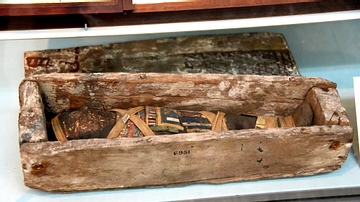
Image
Fake Mummy from Saqqara
Mummies were among the most sought-after souvenirs collected by travelers to Egypt in the 17th-19th centuries. To supplement the supply of genuine bodies, fake mummies were produced as early as the 18th century. This example purports to the...

Image
Tomb of Clovis I
The tomb of Clovis I (466-511/13 CE), King of the Franks. Cathedral of St. Denis, near Paris.

Image
Conquests of Clovis I
A map illustrating the conquests of Clovis I (466-511/513 CE), King of the Franks.
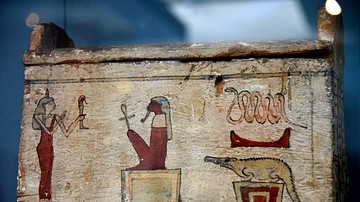
Image
Shabti Box of Neskhons
Neskhons was the 4th daughter of the prophet of Amun Djedkhonsefankh. The scene on the side, of uncertain significance, depicts the deceased presenting a shabti to a group of deities. From Thebes, Egypt. Early 26th Dynasty, circa 650 BCE...
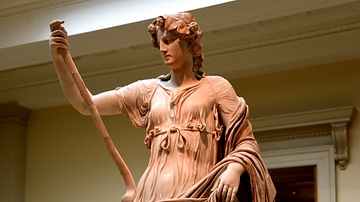
Image
Thalia
In ancient mythology, Thalia was one of the 9 Muses. The Muses were female companions of the god Apollo and devoted to the arts and sciences. Although Thalia was associated with comedy, Roman poets described her as graceful and tender. This...

Image
Bronze Statue of a Young Man from Ziphteh
In ancient Greece and Rome, bronze and marble statues adorned public palaces and the sanctuaries of gods. Over centuries, almost all the bronze statues were melted down for re-use. This is one of the very few surviving examples from Egypt...
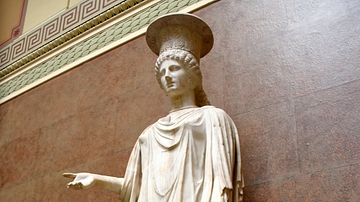
Image
The Townley Caryatid
In Greek and Roman architecture, Caryatids are female figures that stand in place of columns. This example was found in 1585-90 CE near the Via Appia outside Rome. It was acquired by the Peretti family and was kept at the Villa Peretti Montalto...
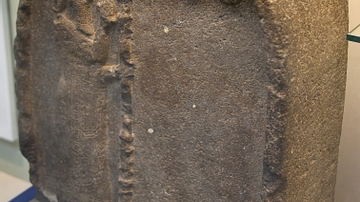
Image
Stela of Nabonidus
Here, Nabonidus (reigned 556-539 BCE) wears the traditional dress of a Babylonian king, holding objects symbolizing justice and power. Before him are the star of Ishtar, the winged-disc of Shamash, and the crescent moon god Sin, to whom Nabonidus...
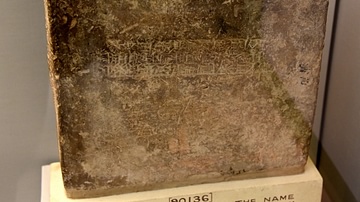
Image
Brick Stamped with the Name of Nebuchadnezzar II
King Nebuchadnezzar II's building program at Babylon used around 15,000,000 baked bricks. Thousands bore his name and titles stamped into the clay: "Nebuchadnezzar...the eldest son of Nabopolassar, King of Babylon, am I". On this brick, a...
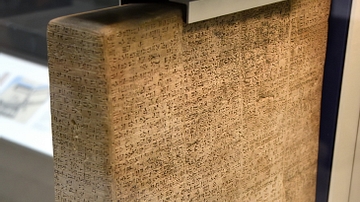
Image
The East India House Inscription
Building Babylon: this inscribed stone was found at the ruins of Babylon and described the religious devotion and civic achievement of king Nebuchadnezzar II. The long inscription records that as well as building the Processional Way and...